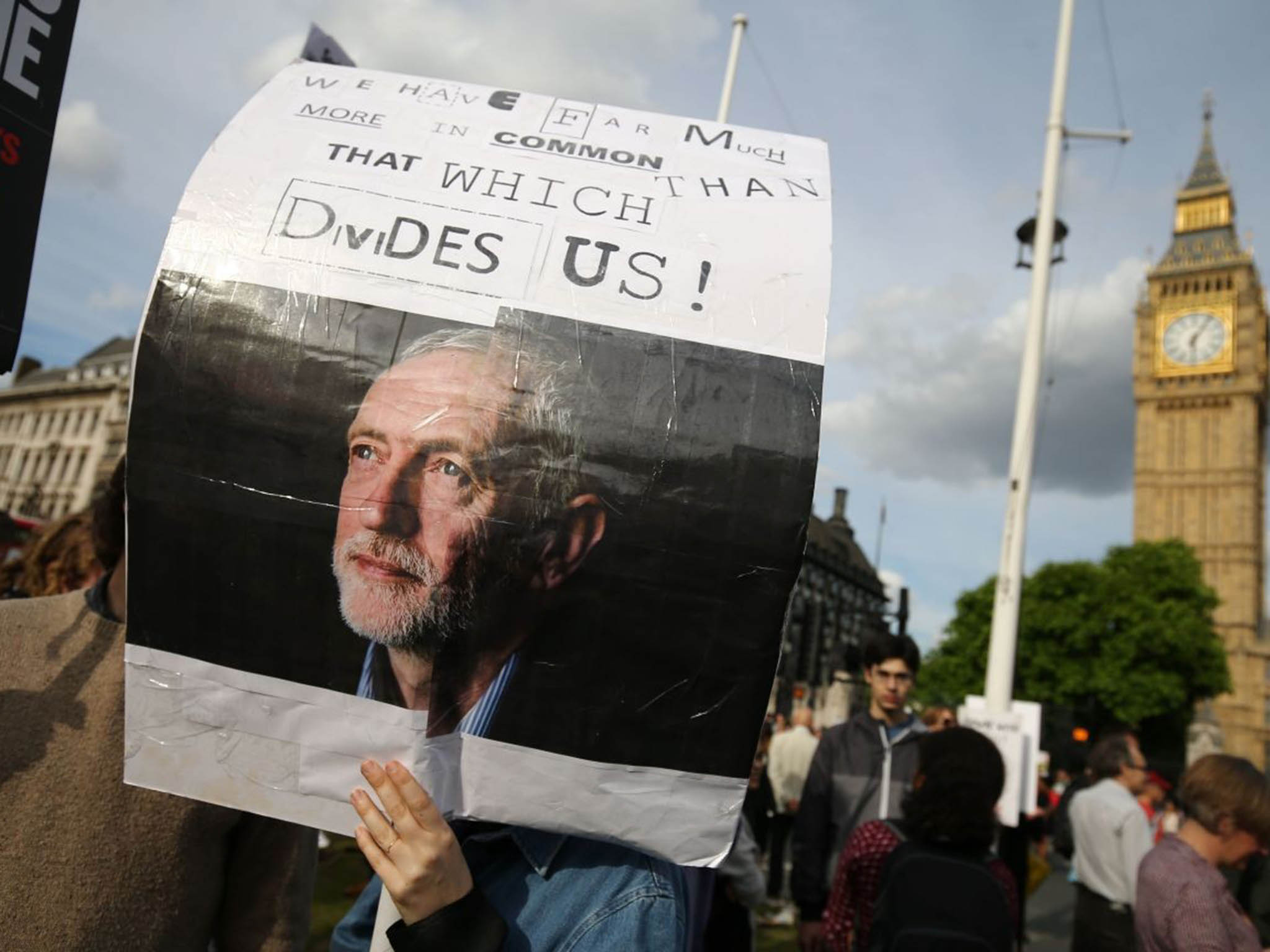Jeremy Corbyn’s nine turbulent months as Labour leader
From his election by a landslide last September to this week's mass resignations from the shadow Cabinet, it's been far from an easy ride

Jeremy Corbyn is facing a possible vote of no confidence from his party's MPs as they attempt to replace him as Labour leader.
Here are some of the key moments from Corbyn's tumultuous nine months as leader:
September 12: Elected leader by a landslide, trouncing three more mainstream rivals with almost 60 per cent of votes, including nearly half of those cast by party members. Makes long-time left-wing ally John McDonnell shadow Chancellor in one of a number of controversial appointments.
September 30: Declares that he would never launch a nuclear strike if he was prime minister. Among those angered is shadow Defence Secretary Maria Eagle who says they “undermine” her policy review.
October 14: Suffers Commons rebellion after dramatic late U-turn sees MPs told to vote against Government commitment to a budget surplus. Mr McDonnell admits repeatedly that it was an “embarrassing” shambles.
October 19: Insists he will not support changes to Labour's rules which would make it easier for constituency parties to deselect sitting MPs amid claims his supporters are manoeuvring to oust moderates.
November 17: Forced to clarify comments, in the wake of the Paris attacks, that he was “not happy” with UK police operating a “shoot to kill” policy. Says would support “strictly necessary force” in the event of a terror attack.
In pictures: Jeremy Corbyn reshuffle
Show all 11November 29: Dismisses talk of being forced out amid open revolt over his refusal to commit to a free vote for Labour MPs on the UK joining air strikes in Syria. “I'm not going anywhere. I'm enjoying every moment of it,” he declares. Within days he has allowed the free vote, prompting Mr Cameron to seek approval, but warning opponents it means there is “no hiding place” for their views.
December 2: Some 66 Labour MPs - including 11 from the shadow Cabinet - vote in favour of air strikes despite the leader's implacable resistance. The party splits are starkly illustrated by shadow Foreign Secretary Hilary Benn making a widely lauded speech from the despatch box in favour.
December 3: Issues a message to party members and supporters saying he won't tolerate “abuse and intimidation from whatever quarter it comes” amid reports of death threats against MPs who voted for air strikes in Syria. Some MPs blame Mr Corbyn's anti-war backers.
January 7: Completes a three-day reshuffle in which three shadow ministers resigned in protest at some of the replacements.
January 13: Reveals his “ultimate object of desire” is a red Raleigh bicycle, retailing at £475.
February 18: Tells a meeting of the Party of European Socialists in Brussels that David Cameron's talks with European leaders were a “theatrical sideshow”. The Labour leader, who has been a critic of the EU, said his party would campaign for the UK to stay in whatever the outcome of the negotiations.
March 23: A document leaked to The Times reveals that Labour MPs have been divided into five groups, citing whether they are a supporter or hostile towards Mr Corbyn. The Labour leader's office denies it comes from them although it shows Mr Corbyn has more opponents than supporters within his own party.
April 5: Calls for HM Revenue and Customs to launch an investigation into all those implicated in the Panama Papers tax haven revelations, including David Cameron's family.
April 29: Sets up an independent inquiry into anti-Semitism within Labour as he battles to assert control over his party following the suspension of former London mayor Ken Livingstone over comments he made regarding Hitler and the state of Israel.
May 6: Labour slips to third in the Scottish parliament elections behind the SNP and Conservatives. While the party held on to two safe seats in Westminster by-elections and losses in English councils were lower than some predicted, frustrations with Mr Corbyn's leadership bubbled to the surface. Two bright wins for Labour were in Bristol and London where the party's mayoral candidates were both victorious.
June 11: Mr Corbyn appears on Channel 4 comedy chat show The Last Leg where he admits half of Labour MPs would relish seeing him fail.
June 23/24: Britain votes to leave the EU, with many Labour voters ignoring their party's advice and choosing Brexit. A motion of no confidence in Mr Corbyn is made by MP Margaret Hodge over his perceived failure to rally the Labour vote behind the Remain campaign.
June 25/26/27: Mr Corbyn sacks shadow Foreign Secretary Hillary Benn, prompting the resignation of more than 40 Labour frontbenchers calling on the leader to resign.
PA
Subscribe to Independent Premium to bookmark this article
Want to bookmark your favourite articles and stories to read or reference later? Start your Independent Premium subscription today.

Join our commenting forum
Join thought-provoking conversations, follow other Independent readers and see their replies